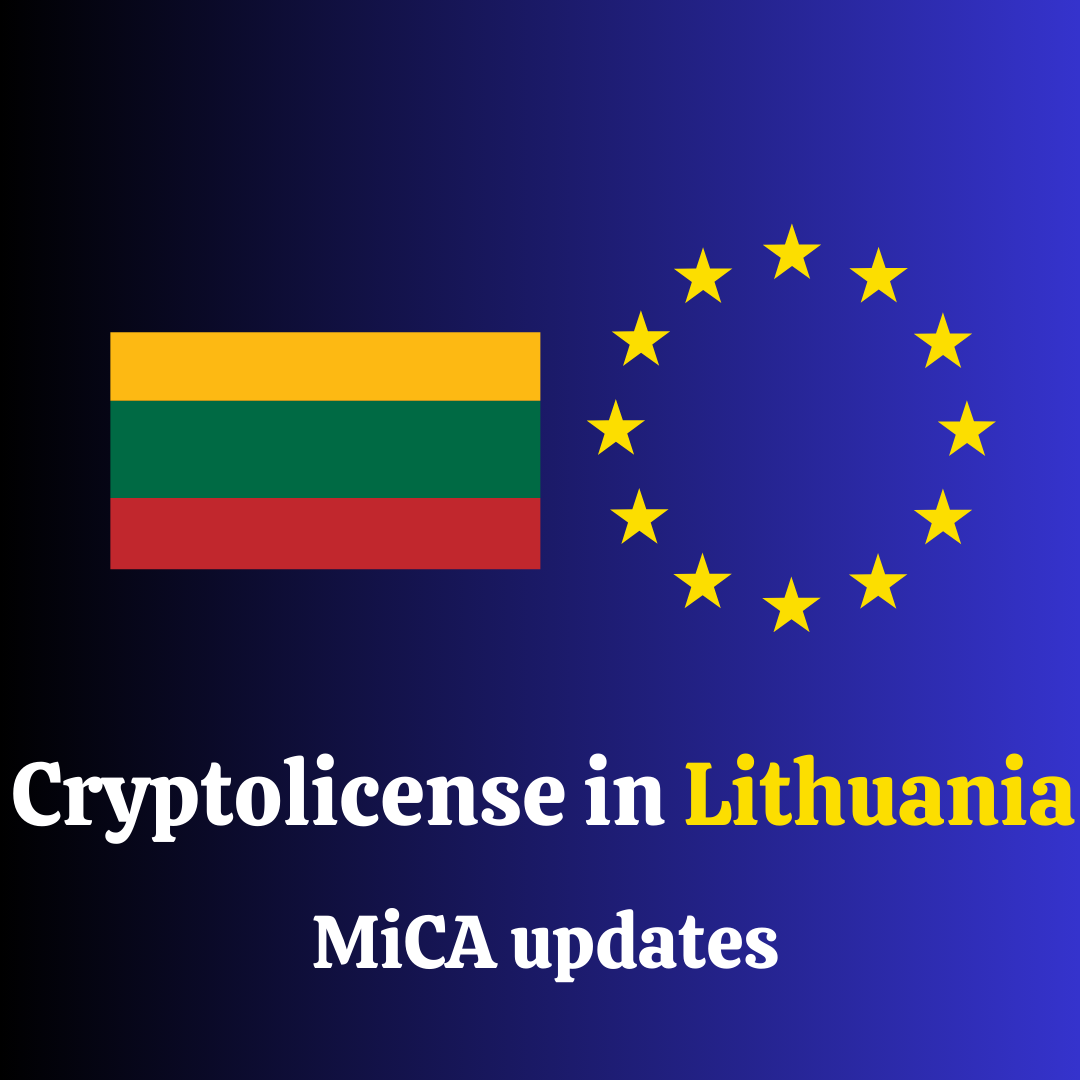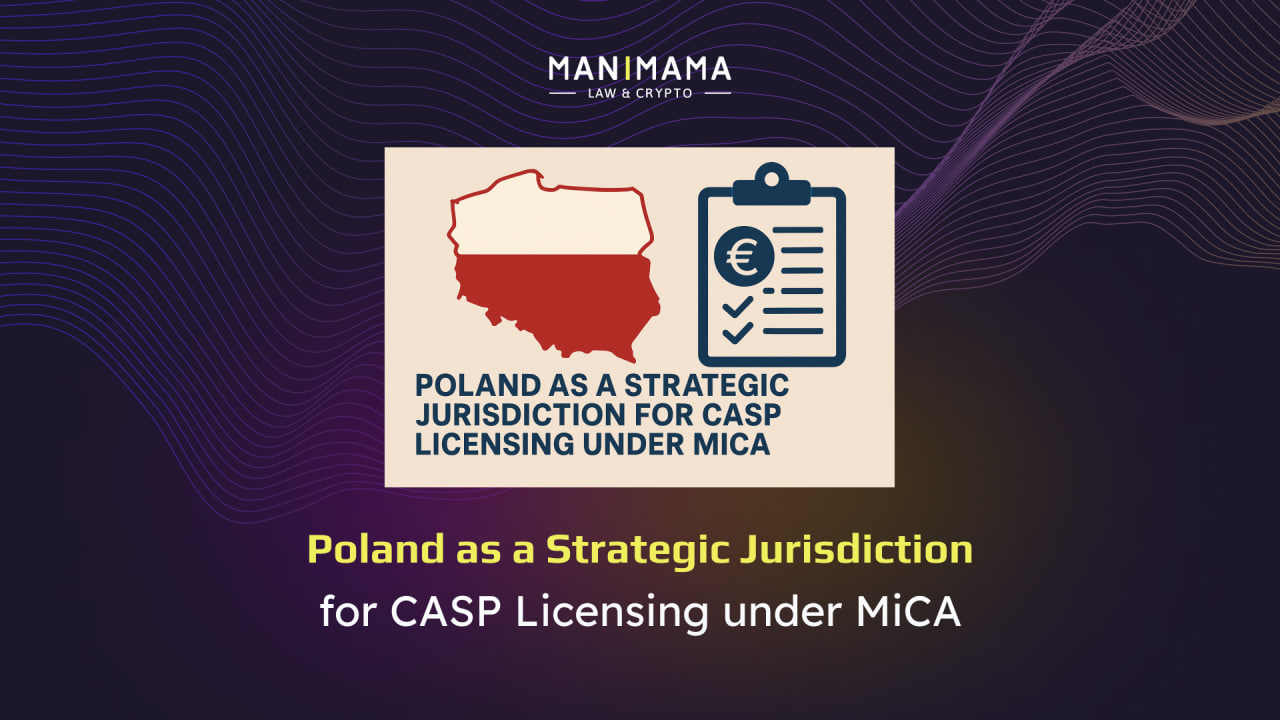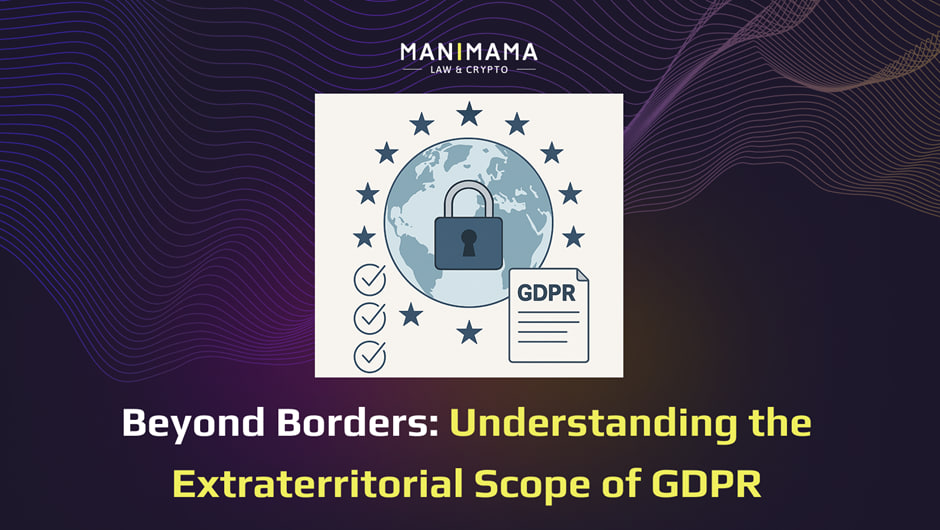Manimama's experts are well versed in the complexities of cryptocurrency regulation and are committed to sharing their findings with businesses and individuals navigating this dynamic sector.
Indeed, our legal team recently finalized a comprehensive study on the national implementation of the Markets in Crypto-assets Regulation (MiCA) in various EU countries. The legal research not only highlights the differences in how MiCA is adopted at the national level, but also offers standard rules for compliance. Today we offer you an insight into the specifics of obtaining a cryptocurrency license in Lithuania under the new MiCA provisions.
Current requirements (prior to MiCA implementation)
1. To start operating as a VASP in Lithuania, a legal entity must be established.
2. The activities of virtual currency exchange operators and/or virtual currency wallet depositories are not licensed in Lithuania, but there are mandatory requirements stipulated in Article 25 of the Law.
3. In order to legally operate as a VASP in Lithuania, it is necessary to notify the head of the Register of Legal Entities no later than 5 working days from the commencement or termination of such activity. By providing this information, VASPs must confirm that they, members of their management or supervisory bodies and beneficiaries are familiarised with and comply with the legislation on prevention of money laundering and terrorist financing (request and notification form available here).
The name of the form is “Apie vykdomą/nutrauktą patikos, bendrovių steigimo ir administravimo paslaugų teikėjo, virtualiųjų valiutų keityklos operatoriaus ar depozitinių virtualiųjų valiutų piniginių operatoriaus veiklą”.
Requirements stipulated in Article 25 of the Law:
1) A legal entity that has started VASP activities must have a senior manager who is a permanent resident of Lithuania, as stipulated in the Lithuanian Law on Personal Income Tax.
2) A legal entity established in Lithuania, the legal form of which is a public limited liability company or a private limited liability company intending to carry out VASP activities, must have a registered share capital of at least EUR 125,000. A legal entity of another legal form established in Lithuania or a branch of a legal entity of an EU Member State or a foreign country intending to carry out VASP activities must have a guarantee or a guarantee document issued by an insurance company in the amount of at least EUR 100,000 for one customer’s claim for damages and EUR 500,000 for all customer’s claims for damages.
3) VASPs must appoint senior staff to organise the implementation of measures to prevent money laundering and/or terrorist financing to liaise with FCIS. If VASPs are chaired by a board, they must appoint a board member and senior staff for this purpose. FCIS must be notified in writing of the appointment or replacement of such staff and board members no later than 7 working days from the date of their appointment or replacement. The management personnel of a VASP shall not represent more than one VASP at the same time.
4) A VASP must not perform activities or provide services in another state to the extent that only non-essential functions or services will remain in Lithuania according to the nature of their activities and will be performed or provided exclusively to clients of another state or in principle they will no longer perform activities in Lithuania.
5) A natural person may not be a member of the management and supervisory bodies or a beneficiary of a VASP if that person has a criminal record for certain offences.
6) VASPs are prohibited from opening anonymous accounts or accounts in knowingly fictitious names.
7) VASPs must establish an internal control system and report unusual and suspicious transactions to FCIS.
Has the jurisdiction enacted a law/draft law implementing MiCA?
Dėl kriptoturto rinkų įstatymo ir susijusių įstatymų projektų (The KRĮ draft)
Who is the regulator under the law/draft law implementing MiCA?
Bank of Lithuania
Requirements for future CASPs stipulated by the national legislation implementing MiCA, the presence of national peculiarities
The KRĮ draft provides that the supervisory authority will issue 2 types of licenses, taking into account the provisions of Article 16(1)(a) and Article 59(1)(a) of the MiCA Regulation, i.e. i.e. licenses of a crypto-asset service provider and an asset-linked token issuer. It should be noted that the draft KRĮ provides that the legal form of the licensed crypto-asset service provider and the licensed issuer of asset-linked tokens is a joint-stock company or a closed joint-stock company.
To be appointed as a manager of a licensed crypto-asset service provider or as a licensed issuer of asset-linked tokens – the person must obtain the permission from the supervisory authority.
A legal person established in the Republic of Lithuania intending to carry out or carrying out the activities of a virtual currency exchange operator and/or a depositary virtual currency wallet operator shall:
(1) a public limited liability company or a private limited liability company:
(a) have a registered and paid-up share capital of at least EUR 125 000 and maintain at all times an equity capital of at least EUR 125 000;
(b) at the time of incorporation and at the time of the increase of the authorised capital, deposit the funds constituting the authorised capital in an account with a credit institution of the Republic of Lithuania or with a credit institution of a Member State of the European Union with a branch in the Republic of Lithuania;
2) a legal person established in the Republic of Lithuania in another legal form or a branch of a legal person of a Member State of the European Union or a foreign state shall, for the entire period of its operation, hold a surety bond issued by an insurance undertaking or a surety or guarantee document issued by a financial institution in respect of an amount of at least EUR 100 000 per customer claim for indemnity, and an amount of at least EUR 500 000 per annum in respect of all claims for indemnity by customers.
The period of time by which the CASP must comply with the new requirements, as well as the procedure for notifying the regulator of compliance with the new requirements
Virtual currency exchange operators and depository virtual currency wallet operators intending to provide crypto-asset services, issue property-linked tokens or issue electronic money tokens in accordance with the MiCAR from December 30, 2024, but no later than June 1, 2025, must submit the documents, data and/or information specified in the MiCAR to the Bank of Lithuania. Documents are submitted regarding the authorization of e-money tokens according to Article 48 of MiCAR. Documents are provided regarding the authorization of tokens linked to assets in accordance with Article 17 of MiCAR. Documents regarding the provision of cryptoasset services are provided in accordance with Article 60 of MiCAR.
Is there a transition period before the full implementation of MiCA?
A transition period until 1 June 2025.
The ability of a CASP from a jurisdiction with a transition period to operate freely in a jurisdiction without a transition period starting from January 1, 2025.
These provisions have not yet been adopted.
Liability provided for CASPs that continue to operate at the place of registration without meeting the new requirements
For the violations referred to in points b and c of Article 111, paragraph 1 of the MiCA Regulation, the supervisory authority imposes fines on legal entities up to 5 million euros or up to 12.5 percent of the gross annual income, depending on which amount is higher.
Manimama Law Firm provides a gateway for the companies operating as the virtual asset wallet and exchange providers allowing to enter to the markets legally. We are ready to offer an appropriate support in obtaining a license with lower founding and operating costs. We offer KYC/AML launch, support in risk assessment, legal services, legal opinions, advice on general data protection provisions, contracts and all necessary legal and business tools to start business of virtual asset service provider.
The content of this article is intended to provide a general guide to the subject matter, not to be considered as a legal consultation.











